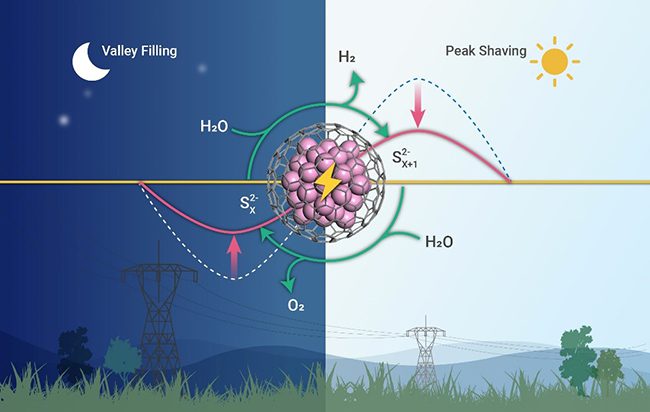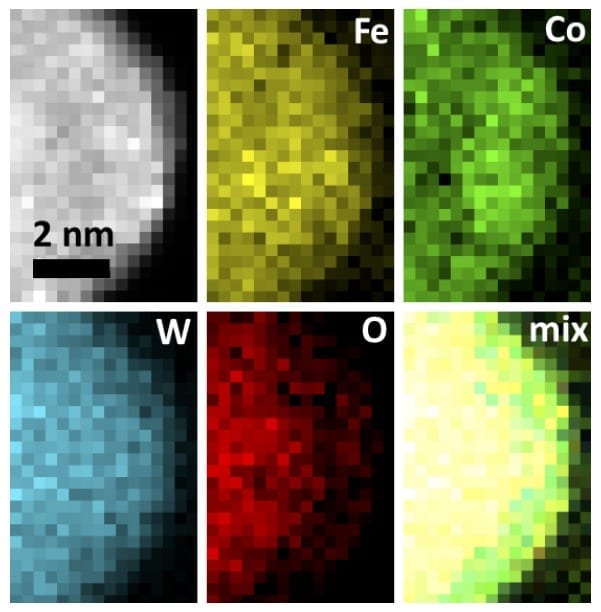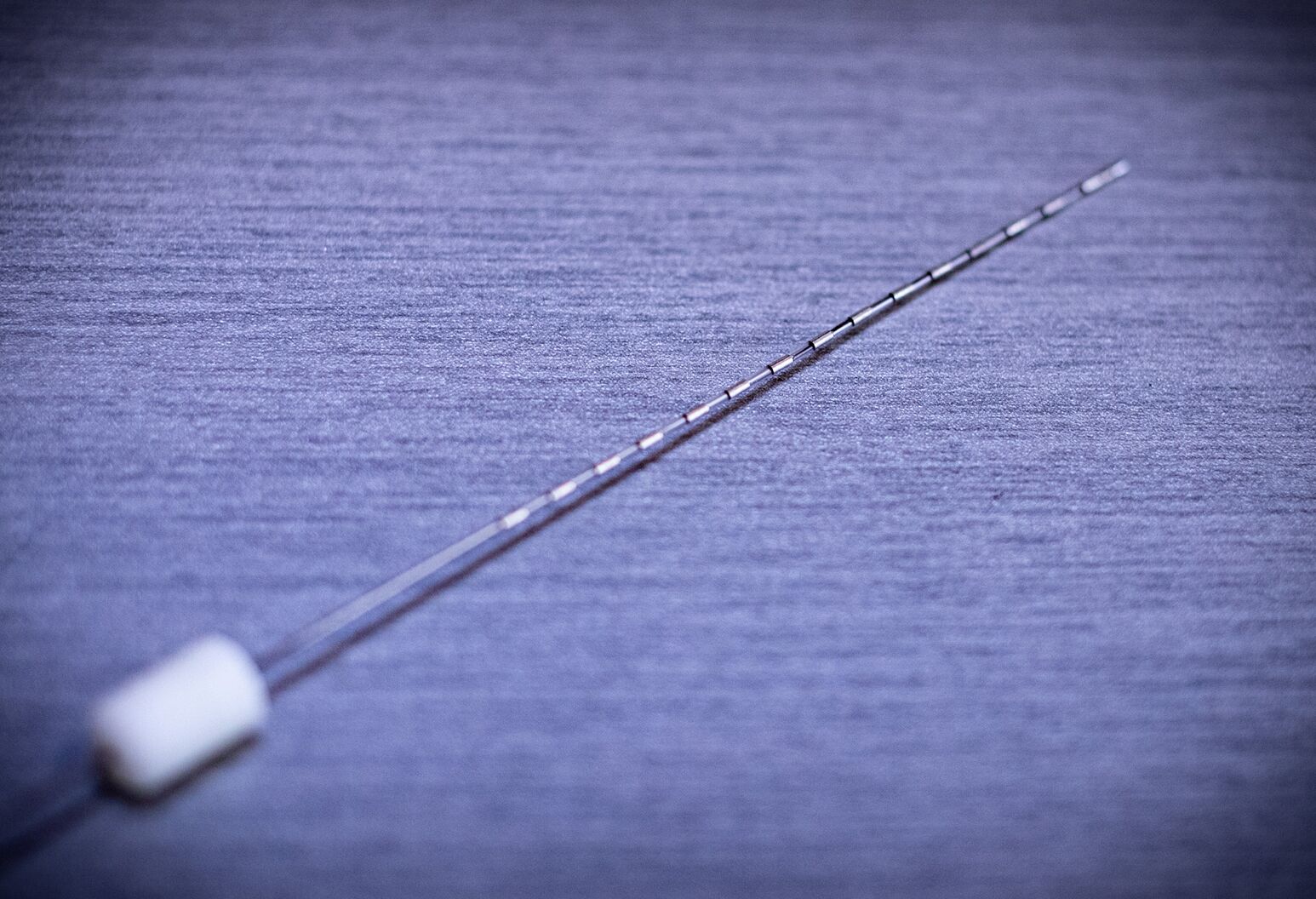
Efficient decoupled water electrolysis device realized peak shaving and valley filling of electricity
(Image by ZHANG Mo)
Decoupled electrolysis of water is a promising strategy for peak load regulation of electricity. It can store surplus electricity in the valley time and produce hydrogen with low energy consumption in the peak time, relieving the imbalance between the generation and consumption of electricity.
Recently, Prof. DENG Dehui’s group from the Dalian Institute of Chemical Physics (DICP) of the Chinese Academy of Sciences (CAS) designed an efficient decoupled water device by using a kind of high-performance chainmail catalyst as the electrode.
Their study was published in The Innovation on July 14.
The researchers used the graphene-encapsulated CoNi chainmail catalyst as the electrode and polysulfides as mediators to develop decoupled water device.
The device produced hydrogen with a low potential of 0.82 V at 100 mA/cm2. Compared with the direct electrolysis of water, the potential of hydrogen production was reduced by 1.24 V, saving 60.2% energy in the peak time.
With the efficient catalysis of chainmail catalyst, this device ran stably for 500 h at the current density of 500 mA/cm2, which reached high capacity of 2.5*105 mAh/cm2 for producing hydrogen.
Prof. GUAN Jing’s group from Qingdao University of Technology studied the reaction active by DFT calculations. They revealed that the superiority of chainmail catalyst originated from the modulation of the electronic structure of graphene surface by metal core and nitrogen dopant.
“This work provides a new route to the rational use of electricity in a separate period, which is helpful to construct smart power grids in the practical applications,” said Prof. DENG.
Original Article: Highly-efficient Chainmail Catalysts Developed for Decoupled Water Electrolysis
More from: Dalian Institute of Chemical Physics | Qingdao University of Technology | Chinese Academy of Sciences
The Latest Updates from Bing News & Google News
Go deeper with Bing News on:
Decoupled electrolysis of water
- Here’s what you can do about PFAS in your drinking water
On Wednesday, the Biden Administration announced strict limits on so-called “forever chemicals” — or PFAS — found in drinking water. Experts estimate this could prevent thousands of ...
- Best Tankless Water Heaters Of 2024
Commissions do not affect our editors' opinions or evaluations. Running out of hot water on a cold winter’s day can make you shiver. Discovering that your old, tank-style water heater has ...
- How Much Water Should You Drink Per Day? What Experts Say
Up to 60% of the average adult human body is water, making proper hydration critical for proper function [1] The Water in You: Water and the Human Body. U.S. Department of the Interior.
- New hydrogen producing method is simpler and safer, researchers say
Developed at KTH Royal Institute of Technology in Stockholm, the new method decouples the standard electrolysis process for producing hydrogen gas, which splits water molecules by applying an ...
- Developing nanocatalysts to overcome limitations of water electrolysis technology
When the team applied the nanocatalyst to a high-temperature water electrolysis cell, it more than doubled hydrogen production rate and operated for more than 400 hours at 650° without degradation.
Go deeper with Google Headlines on:
Decoupled electrolysis of water
[google_news title=”” keyword=”decoupled electrolysis of water” num_posts=”5″ blurb_length=”0″ show_thumb=”left”]
Go deeper with Bing News on:
Water splitting
- Ofwat explores Thames Water break-up in ‘Project Telford’ rescue plan
The water regulator is working on rescue plans for Thames Water that could see its sprawling operations dismantled and sold off as piecemeal to rival suppliers.
- NIKKI SIXX On MICK MARS Splitting With MÖTLEY CRÜE: "We Really Had To Sit Down And Go, 'Well, What Do We Do? Do We Fold?'"
The story of Mick Mars and Mötley Crüe splitting goes back to October 2022, when Mars retired as a touring member of the band. John 5 was announced as his replacement the next day, and was later named ...
- High water hurts early trout season
Anyone in our area who has ventured out for trout so far this season doesn’t need to be reminded that we have had streams running bank high and dirty a great many days. The opening weekend was a ...
- 84-year-old man found dead in water at Bronx golf course: Police
An 84-year-old man was found dead in a body of water at a golf course in the Bronx, according to police. The body was discovered after a report of a drowning at the Pelham Bay and Split Rock Golf ...
- Lawmakers split on whether amendment including Water Commission needs is relevant
Disagreement between the two chambers centers on concerns raised by the state attorney general’s office that the amendment to include the Water Commission is not relevant to the original bill.
Go deeper with Google Headlines on:
Water splitting
[google_news title=”” keyword=”water splitting” num_posts=”5″ blurb_length=”0″ show_thumb=”left”]










